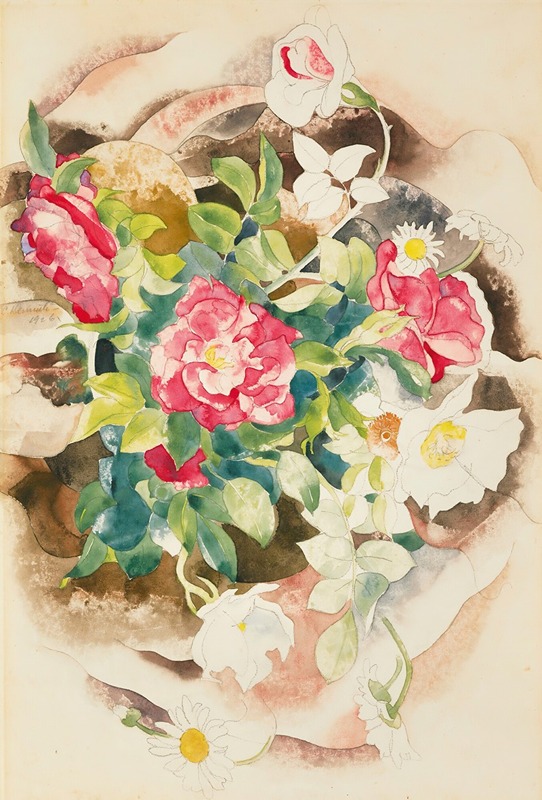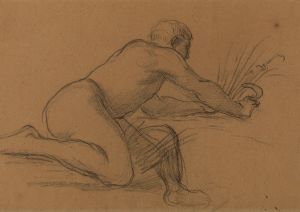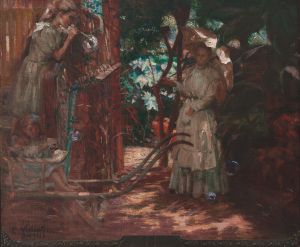
Roses
A hand-painted replica of Charles Demuth’s masterpiece Roses, meticulously crafted by professional artists to capture the true essence of the original. Each piece is created with museum-quality canvas and rare mineral pigments, carefully painted by experienced artists with delicate brushstrokes and rich, layered colors to perfectly recreate the texture of the original artwork. Unlike machine-printed reproductions, this hand-painted version brings the painting to life, infused with the artist’s emotions and skill in every stroke. Whether for personal collection or home decoration, it instantly elevates the artistic atmosphere of any space.
Charles Demuth's "Roses" is a notable example of the artist's work, reflecting his unique approach to painting and his contribution to the Precisionist movement. Charles Demuth (1883–1935) was an American painter known for his modernist style, which often incorporated elements of Cubism and Precisionism. His work is characterized by its clean lines, geometric forms, and a focus on industrial and architectural subjects, although he also created still lifes and portraits.
"Roses" is one of Demuth's still life paintings, a genre he frequently explored throughout his career. While specific details about the painting "Roses" are limited, it is consistent with Demuth's broader body of work, which often depicted flowers, fruits, and other objects with a distinct clarity and attention to form. Demuth's still lifes are celebrated for their meticulous composition and the way they capture the essence of their subjects with precision and elegance.
Demuth was born in Lancaster, Pennsylvania, and studied at the Pennsylvania Academy of the Fine Arts in Philadelphia. He later traveled to Paris, where he was influenced by the avant-garde art scene, including movements such as Cubism and Fauvism. These influences are evident in his work, which often combines elements of abstraction with a keen observation of reality.
In "Roses," as in many of his still lifes, Demuth likely employed watercolor, a medium he favored for its fluidity and ability to capture delicate nuances of color and light. His technique often involved layering washes of color to build depth and texture, resulting in compositions that are both vibrant and subtle.
Demuth's work, including his still lifes, is often associated with the Precisionist movement, which emerged in the United States in the early 20th century. Precisionism is characterized by its focus on clarity, order, and the depiction of modern industrial landscapes. While "Roses" is a still life rather than an industrial scene, it shares the movement's emphasis on precision and form.
Throughout his career, Demuth maintained a close connection to his hometown of Lancaster, which served as inspiration for many of his works. Despite his relatively short life, Demuth produced a significant body of work that has had a lasting impact on American art. His paintings are held in major collections, including the Metropolitan Museum of Art and the Whitney Museum of American Art.
"Roses" exemplifies Demuth's ability to transform everyday subjects into works of art that are both visually striking and intellectually engaging. His still lifes, including "Roses," continue to be appreciated for their beauty, technical skill, and contribution to the development of modern art in America.


















